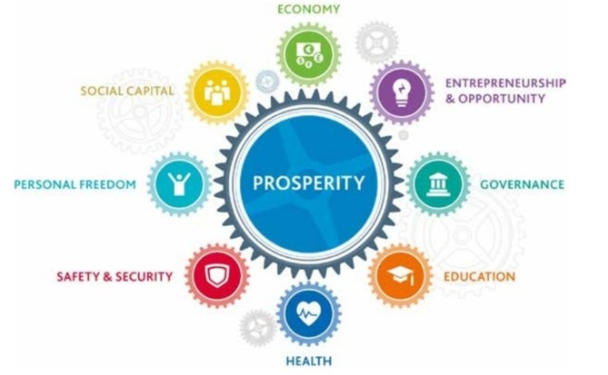Kenya has ranked 12th in Sub-saharan Africa and 113th in the world in the recent Legatum 2019 Prosperity index. The country’s 2019 performance dropped from 2018’s 112th position.
Nevertheless, Kenya showed improvement in market access and infrastructure, thanks to better transport connectivity and improved border administration.
Additionally, Kenya is the 4th most improved country in the world in terms of the investment environment in the past ten years.
Kenya performed best in social capital and moderately in ensuring an enabling investment environment. On the other hand, the country performed its worst in safety and security. Poor performance in safety and security means the country is more susceptible to the conflict in short and long terms.
See Also: Kenya Improves on the Global Ease of Doing Business Index
The report further revealed that Kenya has a lower share of a working-age population as compared to other countries in the world. Kenya has less than 60% share of the working-age population with under 15 population at above 40%. While this creates promise on the future of the workforce, a largely youthful population poses a higher dependency ratio as compared to an ageing population.
Kenya’s demographic composition mirrors Sub-saharan Africa’s population, where the average working-age community is at 55%.
The Asia-Pacific region records the highest population of working-age, hitting 68%. Individual countries in the area such as Singapore and China recorded 77% and 72% working-age population, respectively.
Improving Performance of Sub-Saharan Africa’s Prosperity Index
Sub-Saharan Africa recorded its highest performance ever, with a record change in score of 7 points in ten years.
The region recorded massive improvements in health and market access, whereas safety and economic quality declined. In the past ten years, health improved by 7.8 points, whereas living conditions grew by 4.4 points. Nevertheless, security and economic quality fell by 5.6 and 3.2 points, respectively.
Still, the region ranks lowest in the world as the deficit with the global average grows. Although the area has shown progress in the prosperity score, its gap between the average global prosperity grew from -12.9 to -14.1 since 2009.
Read: Sub Saharan Africa Performing Poorly in Ease of Doing Business
The Legatum Prosperity Index quantifies prosperity in 167 countries based on 12 pillars of wellbeing, built upon 65 actionable areas. The report provides insights that states can use to weigh strengths and weaknesses and guide strategy. Based on their performance, countries can enhance policies that promote prosperity, such as open through inclusive societies and open economies.




